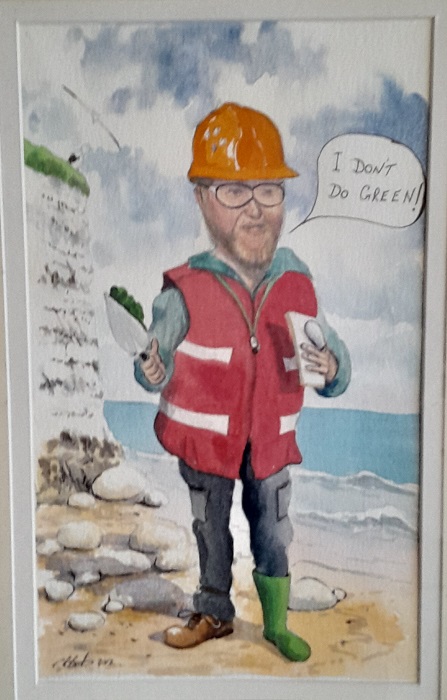
Mike Horne FGS

Moore Medal acceptance speach read to the AGM of the Yorkshire Geological Society in December 2022
I consider it a great
honour to be awarded the Moore Medal and thank the Council and members of the
Yorkshire Geological Society. Over the years I have derived a lot of interest
and pleasure from studying our local rocks and fossils and I have endeavoured to
share the joy with others. I have been fortunate to have met like-minded people
in the YGS and Hull Geological Society who share an enthusiasm for the geology
of our region and volunteer their time to our scientific societies. Long may the
fun continue!
I became interested
in geology when I was thirteen, when I visited a disused quarry in the Cotswolds
and found fossilised shells: I began to wonder why sea shells were in those
rocks in a hill. I was fortunate that I attended a senior school that taught A
level Geology and that my parents supported my hobby. Then I came to Hull to
study for a degree taught by a marvellous group of lecturers and technicians,
with other enthusiastic students. We even went on a field trip to Skye to
celebrate our graduation!
Since then it has
been a pleasure to give something back to our science through research and
trying to share it with others. I would like to think that through the Hull
Geological Society I have encouraged “citizen science” through the restart of
the East Riding Boulder Committee and Roadshows. We have carried out research
together, for example the HGS Centenary Chalk Project and Flamborough Quaternary
Research Group. We also were early to adopt “open access” publishing of our
journal, making it freely available on the internet in 1999. In 1987 we were
asked to “adopt” and care for Rifle Butts SSSI and later the East Yorkshire RIGS
Group was formed with the support of Hull Museum. I was lucky that the
University of Hull allowed me to teach “adult education” classes, making use of
their geology collection on an evening. I am particularly grateful to the
Yorkshire Geological Society for their support of Yorkshire Geology Month since
it started in 2005. None of this I could have done by myself.
My dyslexia has been a great asset. I have learnt my
geology from fieldwork and specimens rather than reading books, and it still
fuels my curiosity. It also means that I think in four dimensions; it makes
perfect sense that that the fossil I found on a hillside was once a living
animal in the sea a long time ago when that sea floor was somewhere quite
distant from its present location. Also, my favourite form of teaching and
passing on our science is to be drawing diagrams in the sand on a beach with a
walking pole and then asking the group to search for something unusual. The
dyslexia can be a drawback also, I have only just learnt how to spell
Gryphaea correctly and I would find reading this precis to the
meeting to be really difficult.
copyright Mike Horne 2022